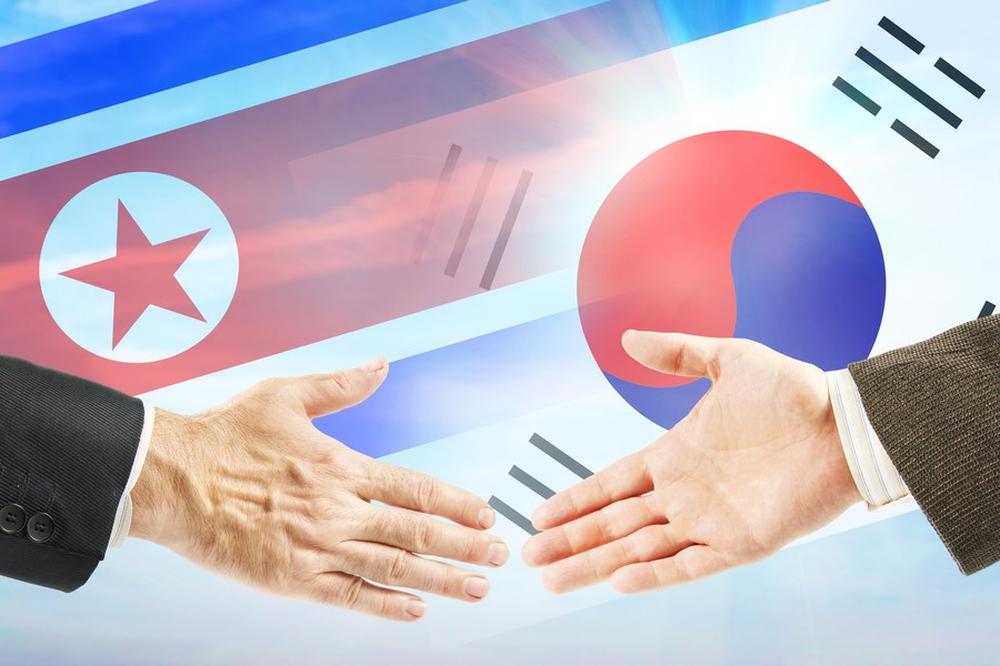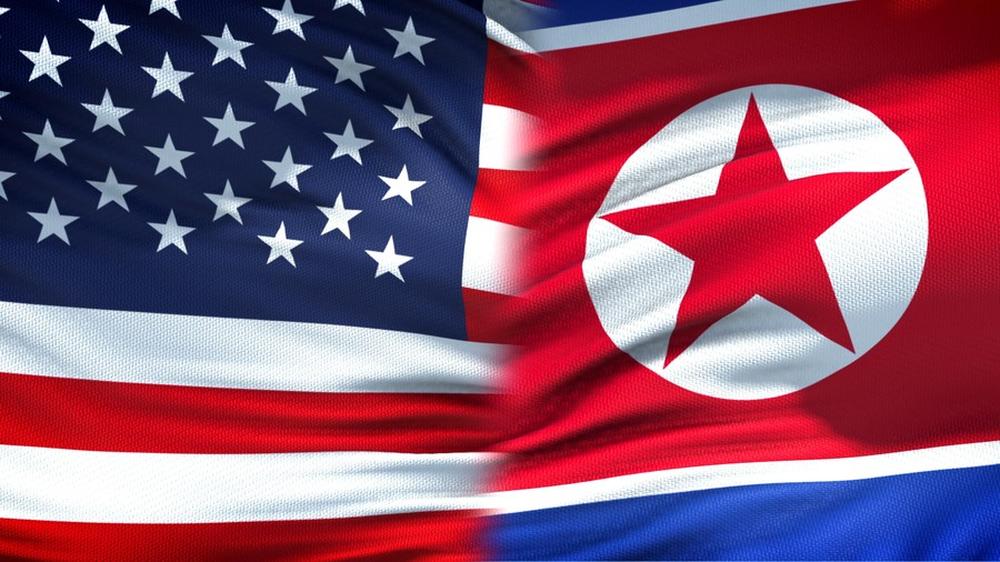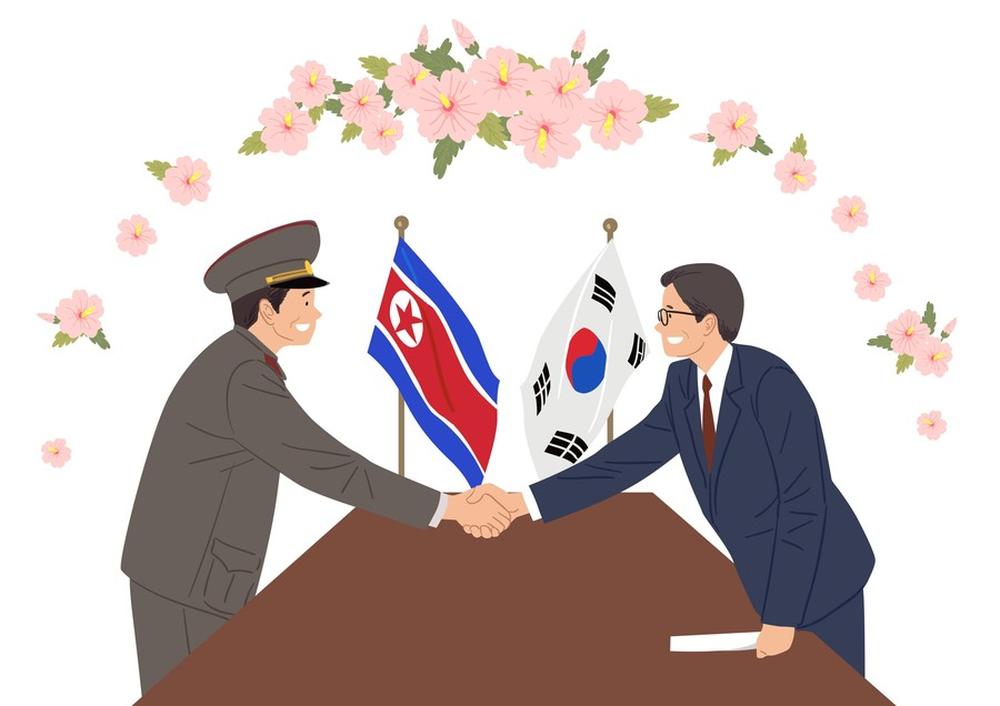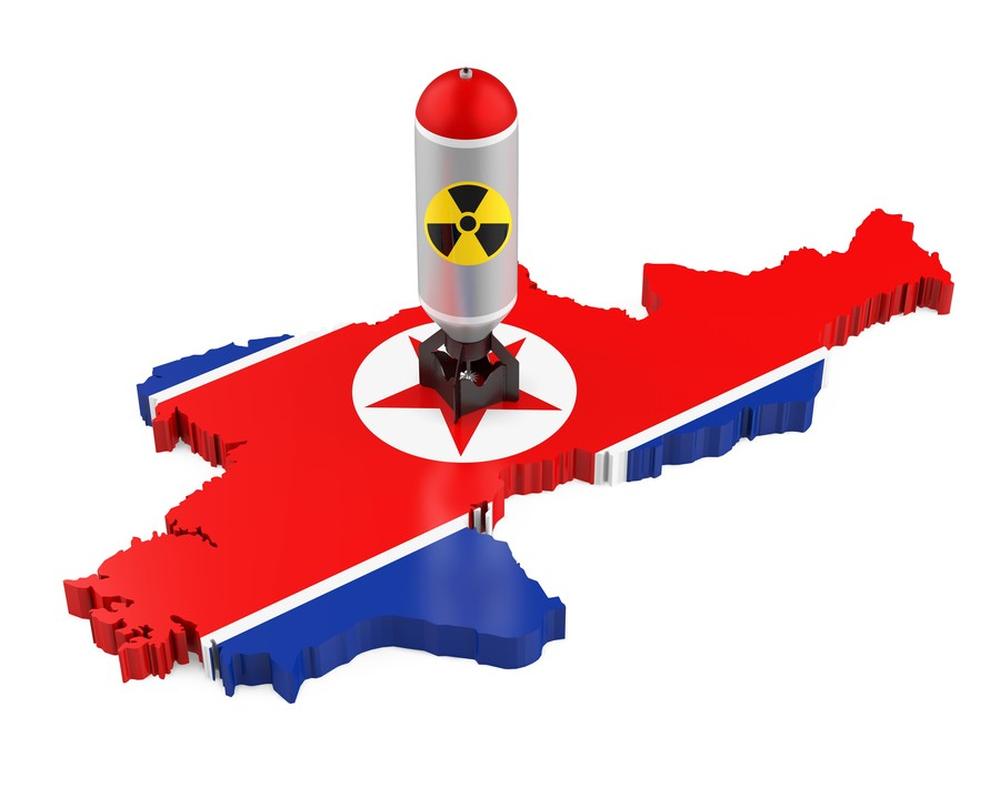- #China
- #Inter-Korean Relations
- #Multilateral Relations
- #US Foreign Policy

► President Moon Jae-in's call for the end-of-war declaration at the UN General Assembly meeting was a responsible and respectable course of action that aimed to push the conservative U.S. side to be more active.
► Therefore, it is imperative that we now transition from the “dual suspension” approach to the “dual-track” approach. The end-of-war declaration could serve as a much needed turning point.
► Parties of interest must launch a diplomatic mechanism to discuss the end-of-war declaration.
Responsible Action
During his speech at the 76th session of the UN General Assembly on September 21, President Moon Jae-in once again called for the end of war declaration that will bring about the end of the Korean War. He said that “an end-of-war declaration will mark a pivotal point of departure in creating a new order of 'reconciliation and cooperation' on the Korean Peninsula” and urged “the community of nations to mobilize its strengths for the end-of-war declaration on the Korean Peninsula.” He also said that “when the parties involved in the Korean War stand together and proclaim an end to the War, I believe we can make irreversible progress in denuclearization and usher in an era of complete peace.” President Moon’s second attempt to bring an end to the Korean War is meaningful in many ways.
In fact, the Korean War technically came to an end 68 years ago. Over the past 68 years, the relationships between the participating actors of the Korean War have undergone great shift. However, legally speaking, the Korean War is still in a temporary ceasefire and the Korean Peninsula continues to be under a state of “unstable peace” or “cold peace.” This temporary truce has forced North Korea to continually advance its nuclear and missile programs, which has put the Korean Peninsula in a Cold War-like environment even though the Cold War ended 30 years ago.
After inauguration, the Moon administration centered its North Korea policy on establishing peace on the Korean Peninsula. This approach was received favorably by the North, which led to a moment of inter-Korean reconciliation during the Pyeongchang Winter Olympics and opened the door for the Korean Peninsula Peace Process. In 2018, the two Koreas held three summit meetings which produced the Panmunjeom Declaration and the September Pyongyang Joint Statement. This led to improvements in inter-Korean relations as well as DPRK-US relations. In June 2018, the first DPRK-US summit meeting took place in Singapore and produced a joint statement.
However, the next DPRK-US summit in Hanoi in February 2019 failed to produce meaningful results, freezing any progress in bilateral relations. American restrictions also debilitated Korea’s policy towards the North, which forced inter-Korean relations to remain stagnant even to this day. President Moon, however, has maintained his effort to establish peace on the Korean Peninsula. In this sense, his call for the end of war declaration at the UN General Assembly meeting aimed to push the conservative U.S. side to be more active. This is a responsible and respectable course of action.
From “Dual Suspension” to “Dual-Track Approach”: China’s Initiative and the End-of-War Declaration
The Six-Party Talks, which was established by China in the 2000s, was a comprehensive framework aimed at denuclearization of the Korean Peninsula, normalization of bilateral relations, and establishment of a peace regime. Even though leadership changes in Korea and the United States have led to varying policy shifts and the Six-Party Talks have not been able to continue, this mechanism accumulated abundant experience in dealing with issues on the Korean Peninsula. In fact, these talks have achieved meaningful results and progress in dealing with the North Korea nuclear problem.
The Barack Obama administration, from 2009 to 2017, sculpted its North Korea policy based on principles of “strategic patience + extended deterrence.” This policy expediated North Korea’s nuclear and missile development and has led to growing tensions on the Korean Peninsula and strained DPRK-US relations. In response, China has proposed the concepts of “dual suspension” and “dual-track approach.”
In February 2016, Chinese Foreign Minister Wang Yi expressed China’s willingness to discuss the possibility of exchanging denuclearization for a peace treaty. At the press conferences of the National People's Congress in March 2017 and the Chinese People's Political Consultative Conference in August 2017, Wang Yi said that “North Korea had taken the first step and suspended its nuclear and missile activities, followed by the suspension of large military exercises by the United States and Korea.” He also said that “through the double suspension mechanism, involved parties have escaped from their security dilemma and returned to the negotiating table” and proposed that “they should seek to establish long-term peace on the Korean Peninsula by simultaneously exchanging denuclearization for a peace treaty, thereby satisfying both sides’ interests.” On March 20, 2017, at the annual meeting of the China Development Forum, Wang Yi proposed once again the concept of “denuclearization for a peace treaty.” With North Korea suspending its nuclear and missile activities and the ROK-US suspending its large-scale military exercises, Wang Yi suggested that this dual suspension approach could serve as the first step towards exchanging denuclearization for a peace treaty.
Whether publicly accepted or not, the security environment on the Korean Peninsula since 2018 has been shaped by the Chinese concept of “dual suspension.” Following the Pyeongchang Winter Olympics, the Moon administration suspended ROK-US military exercises in the spring of 2018. North Korea then announced during the 3rd Plenary Meeting of the Seventh Central Committee of the ruling Workers’ Party that it would suspend all nuclear and ICBM tests and destroy its nuclear test facilities in the northern region. Inter-Korean relations and DPRK-US relations subsequently improved as a result of this dual suspension approach. Even though North Korea has recently tested its medium-range cruise missiles, short-range ballistic missiles, a new hypersonic missile, and anti-aircraft missiles, it has so far honored the April 2017 agreement (not to carry out additional nuclear and ICBM tests).
During the early stages of the Biden administration, President Biden appeared to accommodate President Moon’s policy by framing the issue not as a “North Korean denuclearization” issue but rather a “Korean Peninsula” denuclearization issue, and also appointing a special envoy for North Korea. However, Biden’s North Korea policy is shaping up to be identical to Obama’s strategic patience. Following his appointment in May, U.S. Special Representative for North Korea Policy Sung Kim visited Korea twice and stated that the United States is ready to engage in dialogue with North Korea. This was the only time that the United States has shown any sort of initiative to engage with the North. It has maintained support of the rigorous sanctions regime against North Korea and has failed to respond to any of President Moon’s proposals. When it comes to President Moon’s call for the end of war declaration, the United States has also shown a passive attitude. How will this affect North Korea’s willingness to return to the negotiating table?
The current stalemate on the Korean Peninsula must not continue. If it does, the security environment on and around the Korean Peninsula will likely return to the pre-2018 period characterized by high tension. Therefore, it is imperative that we now transition from the “dual suspension” approach to the “denuclearization for peace Treaty” approach. The end of war declaration could serve as a much needed turning point.
Restarting the Four Party Talks
During his UN General Assembly speech, President Moon called for ROK-DPRK-US trilateral or ROK-DPRK-US-China quadrilateral signing of the end of war declaration. From China’s perspective, China must be included in the process leading up to the declaration given its involvement in the war. Therefore, any talks or considerations about ending the Korean War must abide by the principles and regulations of international law and involve the four directly involved parties.
The four-party engagement is not only in accordance with international law, it is critical to the denuclearization and peace processes on the Korean Peninsula. It is also a requisite condition that can encourage reconciliation and cooperation in order to achieve peace and stability on and around the Korean Peninsula.
Even though the Biden administration has described US-China relations as a “strategic competition,” there are areas in which the two countries could collaborate. Nuclear non-proliferation is one such area. In April, China appointed former ambassador to North Korea Liu Xiaoming as the new Special Representative on Korean Peninsula Affairs. This was followed by the American appointment of Sung Kim in May as Special Representative for North Korea Policy. Liu Xiaoming has been very proactive since his appointment. He has exchanged phone calls with Russian Deputy Foreign Minister Igor Morgulov, ROK Special Representative for Korean Peninsula Peace and Security Affairs Noh Kyu-duk, and Sung Kim to discuss Korean Peninsula affairs. He also met with the Russian, Korean, British, and Swiss ambassadors to China and exchanged views and opinions about issues on the Korean Peninsula. Sung Kim already visited Korea twice. North Korea re-established its communication hotline with the South. These developments suggest that the current environment is ripe for a four-party talk framework.
As such, the four parties must launch a diplomatic mechanism to discuss the end of war declaration. If the conditions for government-to-government exchanges are premature, 1.5 track level framework should be considered as an alternative. If we utilize the four-party framework and use this framework to improve communications, establish mutual trust, and help set up an institutional and stable form of communication line, denuclearization and the peace process on the Korean Peninsula can restart and continue its momentum.
Han Xian-dong is a professor of political science and the director of Center for the Korean Peninsula Studies, China University of Political Science and Law (CUPL). His research interests include North Korea and Korean Peninsular issue, East Asian Politics and regional international relations.


